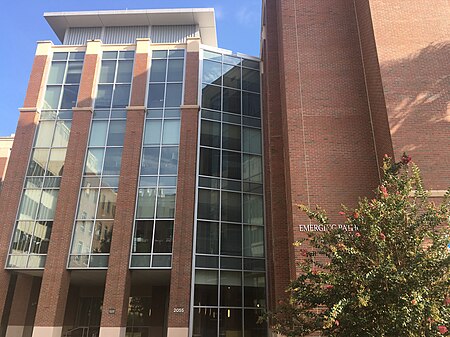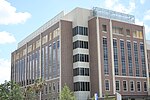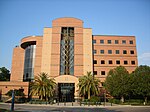Emerging Pathogens Institute

The Emerging Pathogens Institute (EPI) is an interdisciplinary research institution associated with the University of Florida. The institute focuses on fusing key disciplines to develop outreach, education, and research capabilities designed to preserve the region's health and economy, as well as to prevent or contain new and re-emerging diseases. Researchers within the institute work in more than 30 different countries around the world, with over 250 affiliated faculty members stemming from 11 University of Florida colleges, centers, and institutes. The 90,000-square-foot building includes laboratories and collaborative space for bioinformatics and mathematical modeling.
Excerpt from the Wikipedia article Emerging Pathogens Institute (License: CC BY-SA 3.0, Authors, Images).Emerging Pathogens Institute
Southwest 42nd Lane, Gainesville
Geographical coordinates (GPS) Address Phone number Website Nearby Places Show on map
Geographical coordinates (GPS)
| Latitude | Longitude |
|---|---|
| N 29.637187 ° | E -82.352038 ° |
Address
University of Florida
Southwest 42nd Lane
32611 Gainesville
Florida, United States
Open on Google Maps








